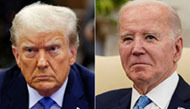For Returning Indians, Unhappy Homecomings
NEW DELHI - In recent years, Mother India has welcomed back tens of thousands of former emigrants and their offspring. But many Indians who spent most of their lives in North America and Europe are finding they can’t go home again.
For many returnees the cultural ties and chance to do good that drew them back are overshadowed by workplace cultures that feel unexpectedly foreign and can be frustrating. Sometimes returnees discover that they share more in their attitudes and perspectives with other Americans or with the British than with other Indians. Some stay just a few months, some return to the West after a few years.
About 100,000 “returnees” will move from the United States to India in the next five years, estimates Vivek Wadhwa, a research associate at Harvard University who has studied the topic. These repats, as they are known, are drawn by India’s booming economic growth, the chance to wrestle with complex problems and the opportunity to learn more about their heritage. They are joining multinational companies, starting new businesses and even becoming part of India’s sleepy government bureaucracy.
But a study by Mr. Wadhwa and other academics found that 34 percent of repats found it difficult to return to India - compared with just 13 percent of Indian immigrants who found it difficult to settle in the United States. The repats complained about traffic, infrastructure, bureaucracy and pollution.
Returnees run into trouble when they “look Indian but think American,” said Anjali Bansal, managing partner in India for Spencer Stuart, the global executive search firm. People expect them to know the country because of how they look, but they may not be familiar with the way things run, she said. Similarly, when things don’t operate the way they do in the United States or Britain, the repats sometimes complain.
“India can seem to have a fairly ambiguous and chaotic way of working, but it works,” Ms. Bansal said. “I’ve heard people say things like ‘It is so inefficient or it is so unprofessional.’ ” She said it was more constructive to just accept unfamiliar customs .
For Shiva Ayyadurai, that was not easy. Nearly four decades ago, at age 7, he left Mumbai with his family but promised himself he would return to India someday to help his country.
In June, Mr. Ayyadurai, now 45, moved from Boston to New Delhi hoping to make good on that promise. An entrepreneur and lecturer at the Massachusetts Institute of Technology, he was the first recruit of an ambitious government program to lure talented scientists of the socalled desi diaspora back to their homeland.
“It seemed perfect,” he said recently of the job opportunity. It wasn’t.
As Mr. Ayyadurai sees it now, his Western business education met India’s notoriously inefficient, opaque government, and things went downhill from there. Within weeks, he and his boss were fighting. In October, his job offer was withdrawn. Mr. Ayyadurai has moved back to Boston.
While several authors of Indian origin have penned soul-searching tomes about their return to India, and dozens of business books exist for Western expatriates trying to do business here, the guidelines for the returning Indian manager or entrepreneur are still being drawn.
There are no shortcuts to spending lots of time working in the country, returnees say.
“There are so many things that are tricky about doing business in India that it takes years to figure it out,” said Sanjay Kamlani, the cochief executive of Pangea3, a legal outsourcing firm with offices in New York and Mumbai. Mr. Kamlani was born in Miami, where his parents emigrated from Mumbai, but he has started two businesses with Indian operations.
When Mr. Kamlani started hiring in India, he met with a completely unexpected phenomenon: some new recruits would not show up for work on their first day. Then, their mothers would call and say they were sick for days in a row. They never intended to come at all, he realized, but “there’s a cultural desire to avoid confrontation,” he said.
clashed with the bureaucracy. He decided to move back to Boston. / CANDACE FEIT FOR THE INTERNATIONAL HERALD TRIBUNE
스마터리빙
more [ 건강]
[ 건강]이제 혈관 건강도 챙기자!
[현대해운]우리 눈에 보이지 않기 때문에 혈관 건강을 챙기는 것은 결코 쉽지 않은데요. 여러분은 혈관 건강을 유지하기 위해 어떤 노력을 하시나요?
 [ 건강]
[ 건강]내 몸이 건강해지는 과일궁합
 [ 라이프]
[ 라이프]벌레야 물럿거라! 천연 해충제 만들기
 [ 건강]
[ 건강]혈압 낮추는데 좋은 식품
[현대해운]혈관 건강은 주로 노화가 진행되면서 지켜야 할 문제라고 인식되어 왔습니다. 최근 생활 패턴과 식생활의 변화로 혈관의 노화 진행이 빨라지고
사람·사람들
more많이 본 기사
- “트럼프, 바이든 데자뷔인줄” 취임 1년새 고령 논란·지지율 뚝
- 트럼프, 시리아內 미군공격에 연일 보복 거론… “큰 피해 있을것”
- 성탄절 초록잎 아래 5초간 1천435쌍 입맞춤…워싱턴 기네스기록
- ‘연준의장 후보’ 해싯 “대통령 목소리는 의견일뿐…FOMC가 투표”
- 윤영호, ‘플리바게닝’ 노렸나…자충수 된 ‘민주당 금품’ 진술
- “머스크처럼…” 미국인 대리모 통해 2세 퍼트리는 中재벌
- 시리아 “미군 살해범, IS 연루 의혹에 해고 직전 범행”
- BTS 정국·에스파 윈터, 열애설에 침묵 후 근황..논란 언급 없이 팬들과 소통
- 젤렌스키 “나토 가입 대신 서방 집단방위 보장으로 타협”
- ‘이럴수가’ 송성문 ‘120억 초대박 계약’ 무효 가능성 현실화, 美 현지 소식 나왔다 “MLB서 최소 5개 구단 관심”
- 시드니 해변 총격 사망자 16명으로 늘어…1명은 어린이
- 도쿄행 유나이티드 항공편, 엔진 고장에 워싱턴으로 회항
- 내년 중간선거 낙관못하는 트럼프… “경제성과 전달에 시간 걸려”
- ‘53세’ 김민종 “2년 안에 결혼한다” 폭탄 발언..일·사랑 모두 잡을까
- 경찰직무집행법 통과로 1차 필버 종료…연말 ‘필버 재격돌’ 전망
- 바비킴, 15년 만에 ‘기내 난동 논란’ 재언급.. “공격적 태도 사과하고파”
- ‘단 4개월 만에’ 손흥민 美 정복, MLS 공식 ‘올해의 영입 2위’... “리그 판도 뒤바꿔”
- 김지수, 꿀꿀했던 韓 떠났다.. “에펠탑 보니 메마른 낭만 살아나”
- 트럼프 특사·젤렌스키 ‘베를린 회동’…우크라 종전안 진전되나
- [특파원시선] 외식비 줄이는 미국… ‘30% 요구’ 팁 공포도 한몫?
- “사초 쓰겠다”던 내란특검 ‘180일 대장정’ 마침표…24명 재판에
- 주말 濠·美서 총기사건…시드니 11명·브라운대 2명 사망
- ‘무려 키패스 3회+평점 8.2’ 이강인 특급 맹활약, 5호 공격P 작렬... ‘간신히’ PSG 선두 탈환
- 주말 濠·美서 총기사건…시드니 11명·브라운대 2명 사망
- 정용진 신세계그룹 회장, 밴스 부통령 성탄절 만찬 참석
- 뉴욕 백화점서 아기 기저귀 갈던 엄마, 정신질환자에 흉기피습
- 내년 중간선거 낙관못하는 트럼프… “경제성과 전달에 시간 걸려”
- ‘손흥민 벽화 3일 만에 그린’ 예술가, SON과 감격 만남 후 “내 아들의 영웅이자 아시아 유산” 찬사
- 변요한♥티파니, 약지에 ‘커플링·포르쉐’..열애 中 티냈다
- ‘김민재 점점 독일 국대에 밀린다’ 독일 현지, 타 향해 연일 찬사... “뮌헨 최고의 영입, 진정한 수비 리더”
- 김연아♥고우림, 사랑하니 닮아가네..예쁜 커플사진
- 인도 투어 나선 축구스타 메시…경기장 조기 퇴장에 팬들 난동
- 10석 안팎까지?…내년 한국 지방선거 때 ‘미니 총선급’ 재보선 가능성
- 1124일만 선고.. ‘20억 횡령 인정’ 박수홍 친형 결론은?
- ‘인니 수마트라섬 대홍수’ 사망자 1천명 넘어…218명 실종
- AI 시장 흔들렸다…챗GPT 독주 속 제미나이 급부상
- 조미김, 미국 수출관세 ‘면제’됐다…K-김 최대시장서 날개
- 한소희, 韓 떠나기 전 의미심장 SN… 1
- 지선 손 맞잡을까…통일교 특검으로 거리 좁히는 국힘·개혁신당
- 韓 탁구 최초 역사… 신유빈-임종훈, 세계랭킹 1위+파리올림픽 金 듀오 꺾고 WTT 파이널스 우승
- 국방부 “시리아서 공격받아 미군 2명 사망…공격범 사살”
- 연말연시 과음 후 속쓰림…단순숙취? “급성염증 신호일수도”
- “다카이치 ‘대만발언’은 對中전략 부재 탓…정상 만나야 해결”
- 트럼프 “인디애나 선거구 조정 반대한 공화의원들, 교체돼야”
- 트럼프 “태국·캄, 교전 중단 합의”… 1
- 오세훈 “내집 마련 꿈, 10·15대책에 짓밟혀…규제 완화해야”
- 아이비리그 브라운대서 총격…최소 2명 사망, 8명 중상
- 트럼프, 시리아서 IS 공격으로 美병사 사망하자 “강력 보복”
- 이정후 태극마크 ‘청신호’ 떴다! 스타 출신 SF 사장 “야수보단 투수가 WBC 위험”→걸림돌 사라졌다
- 내란특검, 김용현 추가 기소… “HID요원 등 명단 노상원에 넘겨”
1/5지식톡

-
 테슬라 자동차 시트커버 장착
0
테슬라 자동차 시트커버 장착
0테슬라 시트커버, 사놓고 아직 못 씌우셨죠?장착이 생각보다 쉽지 않습니다.20년 경력 전문가에게 맡기세요 — 깔끔하고 딱 맞게 장착해드립니다!장착비용:앞좌석: $40뒷좌석: $60앞·뒷좌석 …
-
 식당용 부탄가스
0
식당용 부탄가스
0식당용 부탄가스 홀세일 합니다 로스앤젤레스 다운타운 픽업 가능 안녕 하세요?강아지 & 고양이 모든 애완동물 / 반려동물 식품 & 모든 애완동물/반려동물 관련 제품들 전문적으로 홀세일/취급하는 회사 입니다 100% …
-
 ACSL 국제 컴퓨터 과학 대회, …
0
ACSL 국제 컴퓨터 과학 대회, …
0웹사이트 : www.eduspot.co.kr 카카오톡 상담하기 : https://pf.kakao.com/_BEQWxb블로그 : https://blog.naver.com/eduspotmain안녕하세요, 에듀스팟입니다…
-
 바디프렌드 안마의자 창고 리퍼브 세…
0
바디프렌드 안마의자 창고 리퍼브 세…
0거의 새제품급 리퍼브 안마의자 대방출 한다고 합니다!8월 23일(토)…24일(일) 단 이틀!특가 판매가Famille: $500 ~ $1,000Falcon: $1,500 ~ $2,500픽업 & 배송직접 픽업 가능LA…
-
 바디프렌드 안마의자 창고 리퍼브 세…
0
바디프렌드 안마의자 창고 리퍼브 세…
0거의 새제품급 리퍼브 안마의자 대방출 한다고 합니다!8월 23일(토)…24일(일) 단 이틀!특가 판매가Famille: $500 ~ $1,000Falcon: $1,500 ~ $2,500픽업 & 배송직접 픽업 가능LA…
케이타운 1번가
오늘의 1면
오피니언

22기 LA평통 출범에 거는 기대

연말 시즌 사기·범죄 경계해야
 메건 매카들 워싱턴포스트 칼럼니스트
메건 매카들 워싱턴포스트 칼럼니스트 [메건 매카들 칼럼] 장편영화의 마지막 챕터인가
 김미선 서북미문인협회 회장시인
김미선 서북미문인협회 회장시인 [한국춘추] 하늘을 계산한 사람들, 칠정산
 이희숙 시인·수필가
이희숙 시인·수필가 [금요단상] 그을린 자리에서 다시
 심상용 / 서울대 미술관장
심상용 / 서울대 미술관장 [미술 다시보기] 지옥에 대하여
 서정명 / 서울경제 기자
서정명 / 서울경제 기자[만화경] 주한미군과 ‘도련선 리스크’
 한 영 재미수필가협회 회장
한 영 재미수필가협회 회장 [한영의 독서칼럼] 불안한 사람들
 정영현 서울경제 테크성장부장
정영현 서울경제 테크성장부장 [여명] 콘크리트가 데이터가 됐을 뿐, 달라진 게 없다
1/3지사별 뉴스

“마약밀매·인신매매 등 국제범죄 척결” ‘국토안보 태스크포스’ 뉴욕지부 출범
연방 국토안보부가 10일 ‘국토안보 태스크포스’(HSTF) 뉴욕지부를 출범시켰다.HSTF는 마약 카르텔, 인신매매, 자금세탁, 갱단 등 국제범…
‘오바마케어 보조금’ 올해 말 종료 가능성 ↑ 커져

한국 교사 10명, 페어팩스 초등교 배치
‘글로벌 앰버서더 티처스 프로그램’(Global Ambassador Teachers Program)은 국제 교사 교환 프로그램 가운데 하나로 …
김찬수씨, 포토맥 포럼에 2천달러 기부

주말 濠·美서 총기사건…시드니 11명·브라운대 2명 사망
주말 미국과 호주에서 각각 10명 이상의 사상자가 나온 대형 총기 사건이 발생했다.14일(이하 현지시간) 호주의 유명 해변에서 약 1천명 참석…
내년 중간선거 낙관못하는 트럼프… “경제성과 전달에 시간 걸려”

오늘 하루 이 창 열지 않음 닫기 






















































.png)


댓글 안에 당신의 성숙함도 담아 주세요.
'오늘의 한마디'는 기사에 대하여 자신의 생각을 말하고 남의 생각을 들으며 서로 다양한 의견을 나누는 공간입니다. 그러나 간혹 불건전한 내용을 올리시는 분들이 계셔서 건전한 인터넷문화 정착을 위해 아래와 같은 운영원칙을 적용합니다.
자체 모니터링을 통해 아래에 해당하는 내용이 포함된 댓글이 발견되면 예고없이 삭제 조치를 하겠습니다.
불건전한 댓글을 올리거나, 이름에 비속어 및 상대방의 불쾌감을 주는 단어를 사용, 유명인 또는 특정 일반인을 사칭하는 경우 이용에 대한 차단 제재를 받을 수 있습니다. 차단될 경우, 일주일간 댓글을 달수 없게 됩니다.
명예훼손, 개인정보 유출, 욕설 등 법률에 위반되는 댓글은 관계 법령에 의거 민형사상 처벌을 받을 수 있으니 이용에 주의를 부탁드립니다.
Close
x